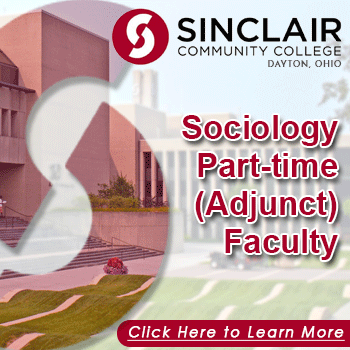This job has Expired
4-OCEANS Postdoctoral Research Fellowship in the Archaeology of North Atlantic Fisheries
Job Description
This is NTNU
NTNU is a broad-based university with a technical-scientific profile and a focus in professional education. The university is located in three cities with headquarters in Trondheim.
At NTNU, 9,000 employees and 43,000 students work to create knowledge for a better world.
You can find more information about working at NTNU and the application process here .
About the job
We seek to appoint a two-year postdoctoral research fellow (PDR) responsible for the archaeological study of North Atlantic marine fisheries over the last two millennia, with a particular emphasis on cod and herring.
The successful applicant will:
- join a growing interdisciplinary team studying human impacts on key marine taxa globally over the last two millennia
- lead their own study of especially zooarchaeological data, within the overall goals of the 4-OCEANS project
- collaborate with project team members specializing in ancient DNA, data science, stable isotope analysis, geometric and traditional morphometrics, zooarchaeology and environmental history, and
- build collaborations with national and international institutions and researchers.
More specifically, the successful applicant will expand our understanding of North Atlantic fisheries by synthesis of published and public domain zooarchaeological data, especially from eastern North America. Focused comparison with existing research regarding European and Pacific Ocean fisheries will also be conducted. The role-holder will work in close cooperation with existing team members (especially Dr. Danielle Buss, Dr. Katrien Dierickx and Dr. Mohsen Falahati-Anbaran) and with external collaborators. The appointee will lead two or more first-authored peer-reviewed international journal articles and contribute to other interdisciplinary publications as a co-author. In addition to journal articles, the proposed research will result in georeferenced open-access datasets suitable for mapping in a forthcoming online 4-OCEANS Atlas of Historical Marine Extractions.
The post-holder will have excellent interpersonal skills and a high level of respect for both Indigenous data sovereignty and collaborators contributing legacy datasets. The appointee will have successfully defended their PhD and demonstrated evidence of being both intellectually driven and highly cooperative in a teamwork setting. They will be clearly motivated to contribute to the scientific and societal goals of the 4-OCEANS project. Candidates having backgrounds in either zooarchaeology or other aspects of archaeology are welcome, with training available to assist the successful applicant in bridging subdisciplines.
4-OCEANS is a European Research Council Synergy Project funded for six years under the European Union’s Horizon 2020 research and innovation programme, with supplementary funding from the Norwegian University of Science and Technology (NTNU). The project aims to assess the importance of marine life for human societies globally during the last two millennia, up to the age of fishing under steam-powered vessels. Further information regarding the project and growing team is available at https://www.ntnu.edu/museum/4-oceans and https://www.tcd.ie/tceh/4-oceans/ .
The post-holder will join the Department of Archaeology and Cultural History, in the University Museum of NTNU. The appointee will be based in Trondheim and cooperate with a large interdisciplinary team: at NTNU, the University of Oslo, Trinity College Dublin, NOVA University Lisbon and internationally.
The post-holder will collaborate with and report to principal investigator Professor James H. Barrett, who can be contacted for informal inquiries.
The post will begin at latest 01. November 2023. The postdoctoral fellowship position is a temporary position where the main goal is to qualify for work in senior academic positions.
Duties of the position
- Liaise with existing and potential project partners who wish to contribute legacy datasets to the 4-OCEANS Atlas of Historical Marine Extractions.
- Finalise and implement a search, data-extraction and meta-analysis strategy for archaeological study of North Atlantic marine fisheries over the last two millennia, with a particular emphasis on cod and herring.
- Ensure quality control and open-access archiving of project data, and associated meta-data, following project protocols.
- Conduct quantitative time series and spatial data analysis in R and ArcGIS, in cooperation with other project members.
- Lead the writing of papers regarding the archaeological study of North Atlantic marine fisheries for international journals.
- Co-author interdisciplinary papers led by other team members.
- Maintain accurate and accessible records of the post-holder’s research expenses and research activities, for reporting to the funder.
- Give effective project presentations in English, and act as a project ambassador during research activities and conference attendance, nationally and internationally.
- Provide frequent updates of project progress to James Barrett and other team members.
- Engage with training opportunities as needed to fulfil the interdisciplinary objectives of the role.
- Assist with occasional project sampling visits (nationally and internationally).
Required selection criteria
- A professionally relevant background in archaeology and/or zooarchaeology.
- Experience with archaeological and/or zooarchaeological research regarding maritime societies.
- The person to be appointed to the post-doctoral research fellowship position must have submitted his/her doctoral thesis before the institution can take the appointment decision.
- The fellowship may not commence until the doctoral thesis has been formally presented, defended and approved.
- A strong academic background from your previous studies.
- A track record of international journal publication, commensurate with career stage. For recent graduates, planned publications can be in manuscript (e.g. forthcoming) form if available for evaluation.
- Respect for Indigenous data sovereignty and the intellectual property rights of collaborators contributing legacy datasets.
- Demonstrated attention to detail regarding data collection and analysis.
- Evidence of excellent time management.
- Evidence of excellent interpersonal skills, collegial teamwork and collaborative research.
- Demonstrated clear motivation to further the aims of the 4-OCEANS project and to work at the NTNU University Museum.
- Ability to conduct daily spoken and written work in English.
The appointment is to be made in accordance with Regulations on terms of employment for positions such as postdoctoral fellow, Ph.D Candidate, research assistant and specialist candidate.
Preferred selection criteria
- Direct experience with data management and databases.
- Direct experience of data analysis using R and/or ArcGIS.
- Experience of international research.
- Excellent public presentation skills.
- Research experience that complements existing expertise within the 4-OCEANS team.
Personal characteristics
- Honesty
- Collegiality
- Intellectual ambition
- Generosity
- Attention to detail
Emphasis will be placed on personal and interpersonal qualities.
We offer
Salary and conditions
As a Postdoctoral Fellow (code 1352) you are normally paid from gross NOK 575 400 per annum before tax, depending on qualifications and seniority. From the salary, 2% is deducted as a contribution to the Norwegian Public Service Pension Fund
The period of employment is 2 years.
The engagement is to be made in accordance with the regulations in force concerning State Employees and Civil Servants , and the acts relating to Control of the Export of Strategic Goods, Services and Technology. Candidates who by assessment of the application and attachment are seen to conflict with the criteria in the latter law will be prohibited from recruitment to NTNU.
The position is subject to external funding.
It is a prerequisite that you can be present at and accessible to the institution daily, except when on holiday or travelling for agreed project research.
About the application
The application and supporting documentation to be used as the basis for the assessment must be in English.
Publications and other scientific work must be attached to the application. Please note that applications are only evaluated based on the information available on the application deadline. You should ensure that your application shows clearly how your skills and experience meet the criteria which are set out above.?
The application must include:
- CV, including education (with results), employment, awards, major conference presentations and publications list
- A cover letter setting out your previous research history, your intellectual ambitions within the 4-OCEANS project, and your motivation for joining the project and NTNU.
- Name and address of three academic referees
- Up to three sample publications or other relevant research work
- If not yet graduated, an official confirmation of the date your PhD requirements will be fulfilled.
- If offered the position, you may be required to provide documentation (certificates and diplomas) of your qualifications
In the evaluation of which candidate is best qualified, emphasis will be placed on education, experience and personal and interpersonal qualities. Motivation, ambitions, and potential will also count in the assessment of the candidates.
NTNU is committed to following evaluation criteria for research quality according to The San Francisco Declaration on Research Assessment - DORA.
General information
Working at NTNU
NTNU believes that inclusion and diversity is a strength. We want our faculty and staff to reflect Norway’s culturally diverse population and we continuously seek to hire the best minds. This enables NTNU to increase productivity and innovation, improve decision making processes, raise employee satisfaction, compete academically with global top-ranking institutions and carry out our social responsibilities within education and research. NTNU emphasizes accessibility and encourages qualified candidates to apply regardless of gender identity, ability status, periods of unemployment or ethnic and cultural background.
A good work environment is characterized by diversity. We encourage qualified candidates to apply, regardless of their gender, functional capacity or cultural background.
The city of Trondheim is a modern European city with a rich cultural scene. Trondheim is the innovation capital of Norway with a population of 200,000. The Norwegian welfare state, including healthcare, schools, kindergartens and overall equality, is probably the best of its kind in the world. Professional subsidized day-care for children is easily available. Furthermore, Trondheim offers great opportunities for education (including international schools) and possibilities to enjoy nature, culture and family life and has low crime rates and clean air quality.
As an employee?at?NTNU, you must at all times adhere to the changes that the development in the subject entails and the organizational changes that are adopted.
A public list of applicants with name, age, job title and municipality of residence is prepared after the application deadline. If you want to reserve yourself from entry on the public applicant list, this must be justified. Assessment will be made in accordance with current legislation . You will be notified if the reservation is not accepted.
If you have any questions about the position, please contact Professor James Barrett, email james.barret@ntnu.no. If you have any questions about the recruitment process, please contact Seniorkonsulent HR Anne Karin Henning, e-mail: anne.karin.henning@ntnu.no
Please submit your application electronically via jobbnorge.no with your CV, cover letter and the other documents requested above. Applications submitted elsewhere will not be considered.
Application deadline: 18.08.2023
NTNU
NTNU - knowledge for a better world
The Norwegian University of Science and Technology (NTNU) creates knowledge for a better world and solutions that can change everyday life.
Department of Archaeology and Cultural History
Our most important field of research is cultural history and cultural heritage, technology and methods of spatial analysis, and conservation in practice. In terms of the Cultural Heritage Act, we conduct archaeological surveys and excavations both on land and in water. Heritage management duties also include preservation and curation of cultural heritage archives and collections. We conduct extensive dissemination and outreach, and educate archaeologists in cooperation with the Department of Historical Studies. The Department of Archaeology and Cultural History is one of two departments at the NTNU University Museum.
*Please mention you saw this ad on AcademicJobs.*




